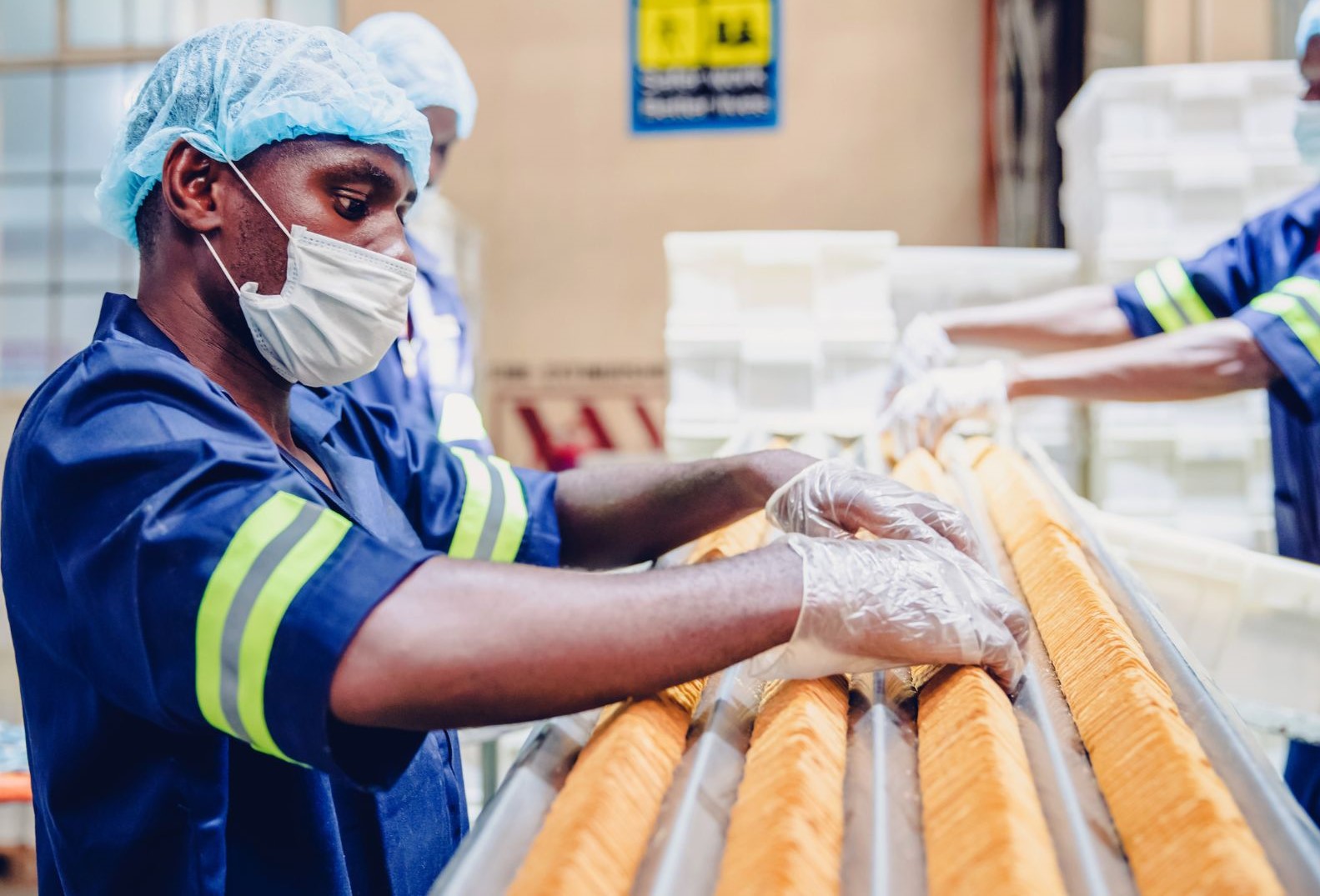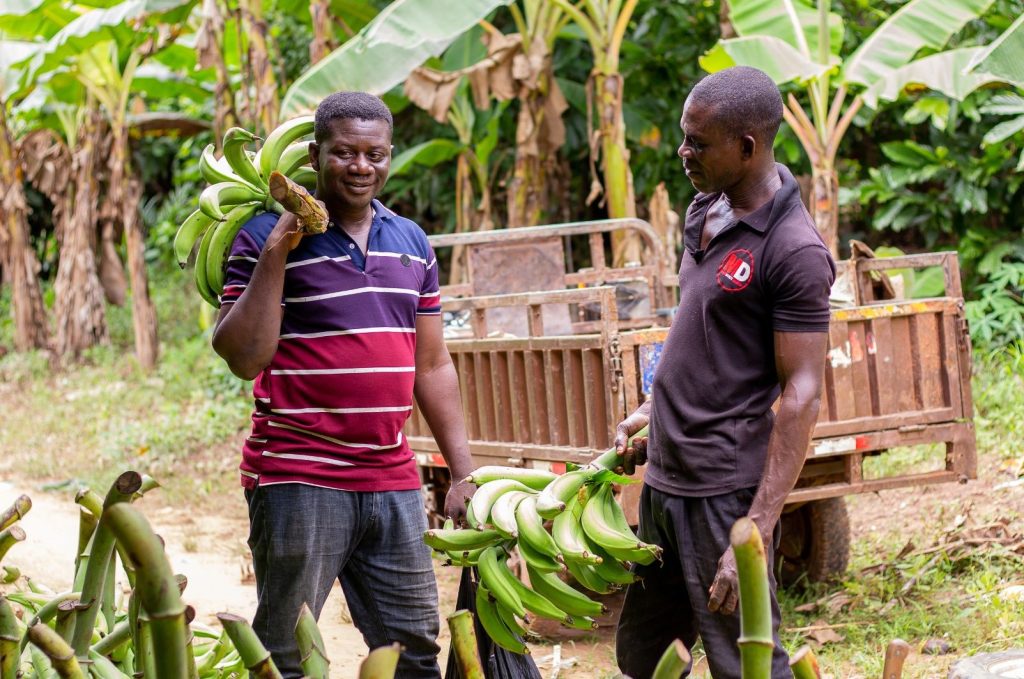Empowering Small-Scale Farmers: Strengthening Market Access and Value Chains
Introduction
Small-scale farmers are the backbone of food production in global agriculture. They supply communities worldwide with the sustenance and livelihoods they need to survive. It is impossible to overestimate the significance of their contribution; nonetheless, these farmers frequently face obstacles associated with market access, inefficiencies along the value chain, post-harvest losses, and information gaps.
This article attempts to shed light on techniques that can empower small-scale farmers by improving their market access, enhancing value chains, optimizing post-harvest management, building market information systems, and fostering collaboration through farmer groups. These are just some of the ways that small-scale farmers can be empowered.
Importance of Market Access and Value Chains for Small-holder Farmers
Access to markets and value chains is important for small-scale farms because they directly affect their ability to make a living and stay in business.
➔ Increased income: When farmers have easy access to markets, prices go up, which means more money for farmers and their families.
➔ Reduced Losses: Value chains streamline processes, cutting down on losses after the harvest and ensuring that more of what was grown gets to customers.
➔ Increased Productivity: When value chains are set up well, output methods improve, leading to higher-quality crops.
➔ Economic Growth: Better access to the market helps the local economy grow by providing demand, jobs, and trade.
➔ Food Security: Access to the market allows small-holders to provide consistent and varied food choices, which helps ensure the community’s food security.
Challenges
Getting the produce to the market is a very important step for people who farm on a smaller scale level. Sometimes, it isn’t easy because the roads are not very good, there is not enough infrastructure, and the buyers are located far from the farm. This presents an even greater challenge in areas where the majority of people still rely on agriculture as their primary source of income and sustenance. If you have easy access to markets, you will not only be able to make more money, but you will also be able to contribute to the growth of your community and ensure that everyone has enough to eat (7).
The relationship between what you cultivate and what you bring in is represented by a value chain. When these are functioning properly, you will be able to increase the amount of money you make, decrease the amount of your harvest that is lost, and plant more crops. A group of researchers came to the conclusion that to create a functioning value chain, one needs to know a variety of topics, such as how businesses operate, the kinds of things that consumers are interested in purchasing, and the strategies one can employ to gain an advantage over one’s rivals (2)
Overcoming Barriers to Market Access
Small-scale farmers can sometimes need help getting their crops to market. Some of the biggest problems are not knowing how much demand there is, not having enough roads, having few resources, and not knowing enough about the market. But don’t worry, you can get help from pros in the field. As a small farmer, you might find getting your crops to the market hard. Still, you can do something about it. The following tips come from people who know what they’re talking about:
➔ Road Improvement: Fix the neighborhood roads so that your harvested products can be moved more easily and quickly.
➔ Local Collaboration: Form partnerships with nearby markets to ensure your goods have reliable connections.
➔ Tech Exploration: Use technology tools to learn about what customers want and how the market is changing. There are also online market places that can give you good visibility and a chance to present your products to international buyers for free in multiple languages. One of the leading B2B (business to business) marekt places is the Wikifarmer Market Place, with over 13.000 registered farmers.
➔ Diversifying your products: This means making more of them so you can meet the needs of different markets. The standardization of the product and its certification, for example, organic, etc., can also increase the product’s value.
These tried-and-true ways can help you get past the problems that are in your way. So, don’t give up because there are problems. With these methods, you will be better able to get past barriers to market entry and do well as a small-scale farmer.

Adding Value to Agricultural Products
Small-scale farmers could make more money if they added value to their crop products. Farmers can get higher prices for their goods and extend their self-life if they process, package, and brand them. This method not only cuts down on losses after gathering but also fits with what consumers want in terms of quality and ease of use (4). One good example is the change in organic prawn farming in Bangladesh, where methods that add value have opened up new opportunities and solved problems (1).
Effective Post-Harvest Management
Tomato post-harvest loss captured by young pioneers of development (YPD, 2017).
Post-harvest losses is a big problem that can be fixed by better ways of managing things. Proper post-harvest management has been found to affect both output and income (6). Careful storing, sorting, and trading can cut losses by a lot. This is good for both food security and making money. A similar study has found that post-harvest practices can be done in a way that is good for the environment (8).
Establishing Market Information Systems
Access to real-time knowledge about the market is a game-changer for small farmers. Market information systems, supported by several well-known NGOs (13), help farmers make better choices about price, timing, and quantity. Farmers can get the latest information about the market through digital platforms and mobile apps. This helps them negotiate better deals and plan production cycles (2). Such systems fill in the knowledge gaps and ensure that small-scale farmers have a fair chance to do well.

Strengthening Farmer Groups
Collaboration through farming groups or cooperatives has shown a lot of promise for making it easier for small-scale farmers to get into markets and have more negotiation power. Research shows how important it is for people to work together to support agroecology and good food systems (5). Farmers can share resources, share information, and bargain as a group through farmer groups. This leads to better market results. These groups have a lot of power when it comes to fighting for farmers’ rights and changing policy (10).
Ultimately, increasing the strength of small farmers is essential for ensuring the world’s food security and fostering rural development. We can make agriculture more equitable and sustainable by addressing issues with access to markets, enhancing value chains, enhancing post-harvest management, establishing market information systems, and encouraging farmers to collaborate with one another through the development of farmer organizations. To realize the potential of small-scale agriculture on a global scale, it will be necessary to include newly developed technologies, financial investments in infrastructure, and collaborative efforts among key stakeholders as we move forward.
References
- Ahmed, N., Thompson, S., Glaser, M. (2018) Transforming organic prawn farming in Bangladesh: Potentials and challenges. Journal of Cleaner Production, 172, 3806-3816. ISSN 0959-6526. [Online] Available at: https://doi.org/10.1016/j.jclepro.2017.06.110. [Accessed: 8/18/2023]..
- De Guimarães, J.C.F., Severo, E.A., Vasconcelos, C.R.M. (2018) The influence of entrepreneurial, market, knowledge management orientations on cleaner production and the sustainable competitive advantage. Journal of Cleaner Production, 174, 1653-1663. ISSN 0959-6526. [Online] Available at: https://doi.org/10.1016/j.jclepro.2017.11.074. [Accessed: 8/18/2023].
- IFAD (2023) Market Access and Value Chains. [Online] Available at: https://www.ifad.org/en/market-access
- Ghosh, Mithun & Sohel, Mehedi & Ara, Nazmin & Zahara, Fatima & Nur, Sajid & Hasan, Md Mahamudul. (2019). Farmers Attitude towards Organic Farming: A Case Study in Chapainawabganj District. Asian Journal of Advances in Agricultural Research. 1-7. 10.9734/ajaar/2019/v10i230026.
- Nyantakyi-Frimpong, H. (2017) Agroecology and healthy food systems in semi-humid tropical Africa: participatory research with vulnerable farming households in Malawi. Acta Tropica.
- Omotilewa, O.J. (2021) A revisit of farm size and productivity: empirical evidence from a wide range of farm sizes in Nigeria. World Development.
- Pretty, J.N., Morison, J.I.L., Hine, R.E. (2003) Reducing food poverty by increasing agricultural sustainability in developing countries. Agriculture, Ecosystems & Environment, 95(1), 217-234. ISSN 0167-8809. [Online] Available at: https://doi.org/10.1016/S0167-8809(02)00087-7. [Accessed: 8/18/2023].
- Saez-Martinez, Francisco & Lefebvre, Gilles & Hernández, Juan & Clark, James. (2016). Drivers of sustainable cleaner production and sustainable energy options. Journal of Cleaner Production. 138. 10.1016/j.jclepro.2016.08.094.
- IFAD (2009) Value Chain Development for Decent Work: A Guide for Development Practitioners, Governments and Private Sector Initiatives. [Online] Available at: http://www.ilo.org/wcmsp5/groups/public/—ed_emp/—emp_ent/documents/instructionalmaterial/wcms_115490.pdf
- Kassie, M. (2020) ‘Women’s Empowerment Boosts the Gains in Dietary Diversity from Agricultural Technology Adoption in Rural Kenya’.
- IFAD (2023) Building Empowering Value Chains: Integrating. [Online] Available at: https://www.un.org/en/ecosoc/docs/statement08/ifad%20and%20wb%20ecosoc%20smallholder%20presentation.ppt
- Young Pioneers for Development (2017) Reducing Post-Harvest Losses in a Food Secure Africa”. [Online] Available at: https://ypdint.wordpress.com/2017/08/07/reducing-post-harvest-losses-matter-in-a-food-secure-africa/










































































